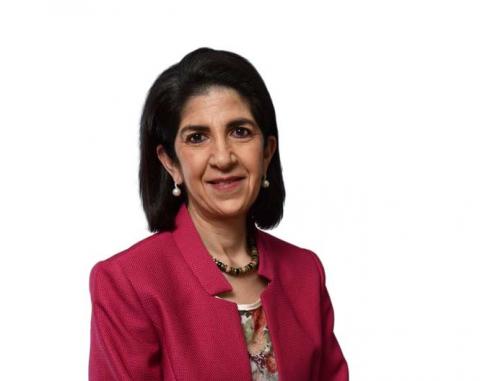The year 2019 marks the 500th anniversary of the death of one of the greatest minds in history. On 2 May 1519 Leonardo da Vinci died, bequeathing an artistic and scientific legacy that resonates to this day. But whereas his art has been admired for centuries, the value of his scientific work took much longer to be recognised. Science is often thus: ideas can take a long time to reach maturity, and they often do so through the coming together of people from around the globe.
Science is universal and unifying. Universal because it is based on facts, not opinions: an apple falls in the same way anywhere on Earth at any time in history, whatever you may think. Unifying because the passion for learning is shared by all. Scientific knowledge has no passport, gender, race or party. So science can play a vital role in connecting people in a fractured world.
The place where I work is a case in point. We operate powerful machines, particle accelerators, to study the fundamental constituents of the matter that makes up the universe. CERN brings together more than 17 000 scientists from all over the world. Some come from countries in conflict, yet they all work enthusiastically together, in pursuit of common goals.
Inspired by CERN, SESAME is a laboratory for fundamental and applied research in the Middle East. Located in Jordan, its members come from across the region: Cyprus, Egypt, Iran, Israel, Jordan, Pakistan, Palestine and Turkey. The scientists work in harmony, sharing their experience around the same tables.
Places like CERN and SESAME cannot directly solve geopolitical challenges. But they can break down barriers. They are examples of what humanity can achieve when we focus on the common good.
Face the facts
Today, society faces many challenges: climate change, energy supply, food security and public health, to name a few. Collaborative science is an inescapable part of the solution to all of them. Science should also be an essential part of the decision-making process, because whatever decisions we take, they must be based on objective facts and scientific evidence.
Without the innovative ideas that come from scientific research, progress sooner or later stagnates. And history shows that major breakthroughs often come from fundamental research – eventually. This brings me to another anniversary.
In 1919 Albert Einstein’s theory of general relativity was vindicated by a British scientist, Arthur Eddington. Relativity, like quantum mechanics, is a landmark of 20th-century physics. Together, they underpin much of our understanding of how the universe works. Yet when they were developed, they were considered esoteric, abstract and without any practical use.
One hundred years later, we know that they are far from useless. Without quantum mechanics, modern transistor-based electronics would not exist, and without relativity, the satellite-based global positioning system (gps) could not work. Einstein and the founders of quantum mechanics, however, were not trying to invent new kinds of electronics or navigational tools; they just wanted to understand how the universe works.
The lead times from discovery to application are often long. The time it took to turn some of Leonardo’s remarkable sketches into reality may be an outlier in this respect, but the timescale of decades from Einstein to gps is common.
My own field of particle physics has a well-known example, perhaps just at the beginning of that road: the Higgs boson. Predicted in 1964, it was not discovered until 2012, and if it will ever be put to practical use, I certainly can’t tell you what that might be and when it might happen.
Yet the Higgs boson already enriches our culture through the insights it brings, and the tools deployed to discover it are finding applications elsewhere, from medical imaging to cancer treatment, solar panels and the analysis of historical relics.
I cannot emphasise enough the importance for humanity of the pursuit of “useless knowledge”, as so brilliantly laid out by Abraham Flexner, a founder of the Institute for Advanced Study in Princeton, in his article, published in 1939, “The usefulness of useless knowledge”. It is up to governments to ensure that fundamental science can flourish for the benefit of future generations – and that we don’t miss the next Einstein or Leonardo.
From The World in 2019 © 2018 The Economist Newspaper Limited, London. All rights reserved.

